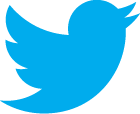 I was sat this morning looking through twitter when I came across a comment and blog discussing how Twitter could not replace Professional development (http://readingbyexample.com/2013/09/25/twitter-for-pd-yes-twitter-to-replace-pd-not-so-much/). As such I thought I would add my views to the discussion, deciding that 160 characters would be insufficient to clearly articulate my thoughts, hence my views are expressed here.
I was sat this morning looking through twitter when I came across a comment and blog discussing how Twitter could not replace Professional development (http://readingbyexample.com/2013/09/25/twitter-for-pd-yes-twitter-to-replace-pd-not-so-much/). As such I thought I would add my views to the discussion, deciding that 160 characters would be insufficient to clearly articulate my thoughts, hence my views are expressed here.
Professional Development
I think a key issue in the discussion of professional development and where twitter may or may not be involved, is what people perceive as professional development. Matt’s post suggested the importance of collective instructional capacities and of what I will call traditional professional development in their development within a group. This traditional professional development was deemed as not possible via Twitter. Now I can see the point here in that a professional development programme may allow a group of staff within a school to receive the same information plus to discuss and agree on actions to be taken, however its usefulness relies on professional development being driven by the professionals themselves; the teachers. In my experience a lot of professional development is driven by government, educational authorities or school leaders who believe they know what teachers need. As such it can be inappropriate in terms of meeting teacher’s needs, too generic in terms of policy or just a total waste of time.
I also have an issue with the title of professional development. The idea of development suggests that teachers are in some way underdeveloped or lacking in an area which requires development. I much prefer the concept of professional learning, in that, as professionals we are always learning and trying to build on and improve our classroom practices.
But what about Twitter?
Twitter provides teacher access to a wealth of ideas and resources from teachers across the world. It allows teachers to develop professional learning networks which are wide and varied, much beyond what is normally accomplished within professional development sessions. Yes, this may mean individual teachers pick up different ideas and techniques however individual teachers are individual after all. Each teacher has their own strengths and weaknesses in terms of their teaching as well as their own preferences and style. A perfect example of this was a recent blog article which was critical of the use of De Bono’s thinking hats (http://www.learningspy.co.uk/myths/six-silly-hats-ok-mock-stuff-think-daft/. The blog met with a number of comments from defenders of De Bono, who stated how they found De Bono useful while others argued that De Bono’s ideas were of no or little value. This perfectly illustrates how teachers are individuals with their own perceptions of what works. These perceptions are borne out of what works for them, as opposed to “what works” in impossibly general terms.
That being said, teachers as part of the learning community which is a school, and also as part of the learning community that is their department, subject or faculty, have a responsibility to bring new ideas, techniques and thoughts to their colleagues for discussion. These discussions lead to the collective adoption of ideas and techniques, or not as the case may be. It is these opportunities for sharing and discussion that allows twitter to potentially take the place of traditional professional development.
Like anything, twitter relies on its appropriate use. Where used appropriately it can have a positive impact on helping teachers improve their practice through access to wide and varied professional learning networks. Traditionally viewed professional development, also where used appropriately, can have a positive impact although it very seldom provides access to same variety of opinions and ideas as presented via twitter.
As such twitter could replace professional development however I say this with one contingency; that opportunities are provided within schools for ideas gleaned through twitter to be shared, discussed and agreed upon. Now I hear some of you saying that such opportunities are surely “professional development” opportunities however my perception of professional development sessions involves the delivery of specific topic area, concept or technique. The opportunities I refer to would have more in common with TeachMeets where the topic and discussion is more open and creative in nature, however that may be for a later discussion.

